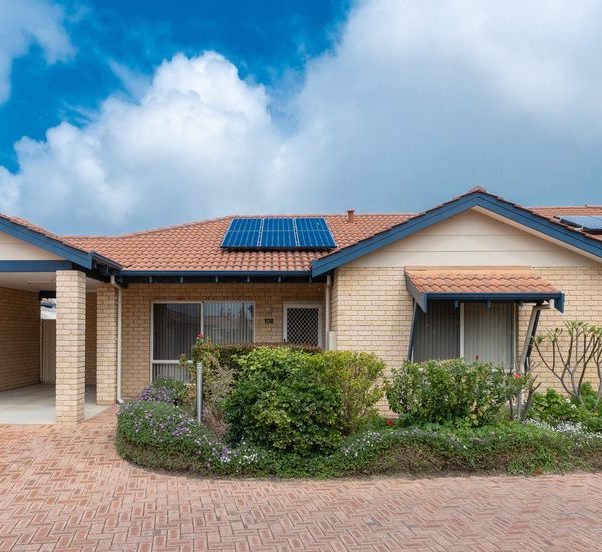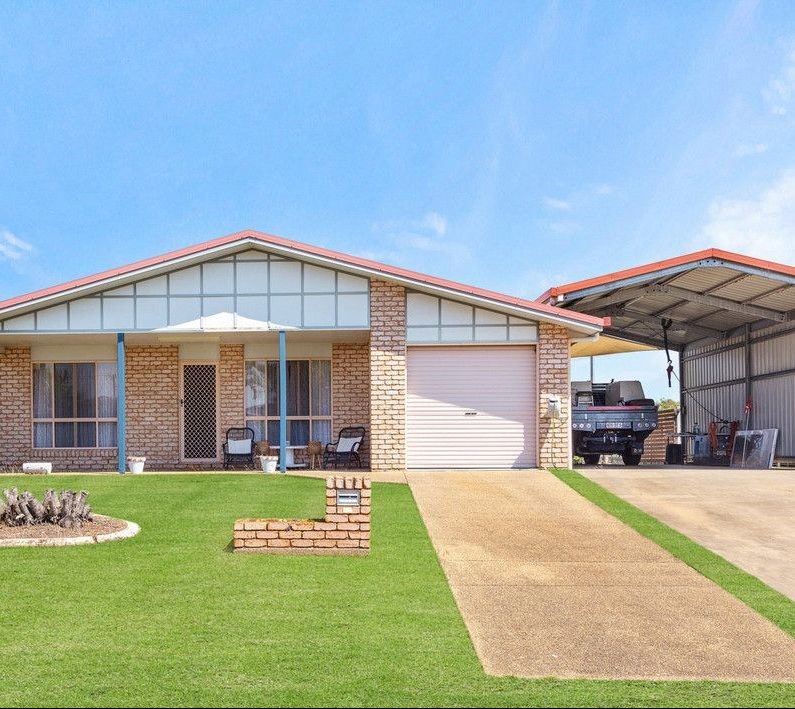
Restrictions on foreigners buying property in australia explained
A sun-soaked beaches, a vibrant lifestyle, and a potentially booming property market – Australia might just be your investment dream come true.
And beyond this attractiveness of barbecues and stunning scenery lies the potential for serious financial gain.
Australian real estate entices investors with the possibility of both capital growth (property value appreciation) and solid rental yields, especially in major cities like Sydney, Melbourne, and Brisbane.
Intrigued?
There’s more to the story.
Central to the regulation of foreign investment in Australian property is the Foreign Investment Review Board (FIRB). The FIRB is a governmental body that assesses applications from foreign persons looking to invest in Australian real estate to ensure such investments align with the national interest. The primary aim is to direct foreign investment towards new property developments and boost the construction sector by supporting economic growth without disadvantaging Australian homebuyers.
So who qualifies as a foreign investor?
The first step is understanding if you qualify as a foreign investor. Here’s a breakdown of the two main categories:
- Non-Residents: This applies to individuals who don’t live in Australia and aren’t citizens or permanent residents. For you, buying property typically requires approval from the FIRB. This government agency ensures foreign investments align with Australia’s interests and generally, non-residents can only buy new properties or undeveloped land.
- Temporary Residents: This includes folks in Australia on temporary visas, like students or those on work assignments. You can buy property, but there are limitations. Usually, you’re restricted to new dwellings or established properties you’ll actually live in. And, when your visa expires, the property needs to be sold unless you become a permanent resident or citizen.
So what exactly can you, as a foreign investor, buy?
Types of properties foreign investors can buy in australia

New buildings and off-the-plan properties
Australia wants to see its housing market grow, and that’s where you come in! The government encourages foreign investors to focus on new constructions or “off-the-plan” properties (those still under development). Why? Because these investments directly create new housing stock, stimulating the construction industry and creating jobs.
Imagine you’re a foreign investor with your eye on a new apartment in Melbourne’s CBD. The price is AUD $500,000, and you’d need to apply for FIRB approval. If approved, your investment would add to the available housing supply without competing with everyday Australians looking for a place to live.
Vacant land with construction commitments
Investing in vacant land is another option, but there is a catch. You’ll need to commit to developing the property within a specific timeframe (usually four years). This ensures your investment leads to new construction and improvements, further boosting the economy and housing supply.
For instance, let’s say you purchase a plot of vacant land in Brisbane with the intention of building a duplex. After the FIRB application process is approved, you’ll need to break ground within four years and notify the FIRB upon completion, proving the development is complete.

Firb approval process
Step-by-step guide on how to apply for firb approval
Do you need approval?
Gathering your document
The cost of approval
Approval timelines
Tip: Include a condition in your purchase contract that makes the sale contingent upon FIRB approval. This protects you in case you haven’t received approval by the time you sign the contract.
CHAT TO US
BOOK A CALL WITH OUR EXPERTS! ALL YOU NEED IS $65,000
With $65,000 in savings or equity, you can begin or grow your investment portfolio with high-growth properties in Australia's strongest property markets.
Breakdown of costs involved in buying property as a foreigner
Firb application fees
Stamp duty surcharges
Land tax for absentee owners
Example:
Let’s say you’re a foreign investor buying a property in Victoria for AUD $800,000. Here’s a breakdown of what you might pay:
- Property Price: AUD $800,000 (this is the big one!)
- FIRB Application Fee: Around AUD $6,350
- Stamp Duty: AUD 55,000 (base rate) + AUD 64,000 (foreign buyer surcharge) = AUD 119,000
- Absentee Owner Land Tax Surcharge: This could vary, but let’s say it’s 1.5%, which would be AUD 12,000 annually.
So, all those upfront costs, excluding the property price itself, could add up to more than AUD $137,350. And on top of that, there are ongoing annual costs like the absentee owner land tax.
The role of taxes
Capital gains tax (cgt)
Rental income tax
Beyond taxes: legal considerations for foreign investors
Owning property in Australia involves more than just tax implications. Here are some legal hurdles to keep on your radar:
- FIRB Approval: Remember that FIRB approval is mandatory for certain types of property purchases by foreign investors. Make sure you understand the process and get the green light before you move forward.
- Local Laws and Regulations: You’ll need to comply with local laws regarding property ownership, zoning regulations, and rental agreements.
Conclusion
WHAT OUR CLIENTS THINK OF US
 Gemma Kim2024-04-04We worked with TIA to purchase our first investment property. We were a bit nervous to take the leap initially. However, the team were so helpful and supportive throughout the whole process. The process was clear and informative at every step. The team were readily available to answer questions. Thanks to the team and their expertise we have walked away with an incredible investment property which is already showing signs of return and growth after a very short period of time. We have full confidence in TIA and we look forward to working with them again for the next investment opportunity.
Gemma Kim2024-04-04We worked with TIA to purchase our first investment property. We were a bit nervous to take the leap initially. However, the team were so helpful and supportive throughout the whole process. The process was clear and informative at every step. The team were readily available to answer questions. Thanks to the team and their expertise we have walked away with an incredible investment property which is already showing signs of return and growth after a very short period of time. We have full confidence in TIA and we look forward to working with them again for the next investment opportunity. Yechan Kim2024-04-04Amazing service and attention to detail from the entire team. We managed to secure a fantastic investment property as a great price. The research, information, communication is levels above other buyer's agents. Will be coming back for 2nd and 3rd properties.
Yechan Kim2024-04-04Amazing service and attention to detail from the entire team. We managed to secure a fantastic investment property as a great price. The research, information, communication is levels above other buyer's agents. Will be coming back for 2nd and 3rd properties. Noah Chen2024-04-04Absolutely elated to choose The Investors Agency as my buyers agent. I have bought 2 properties with The Investors Agency, first one with Bobby in 2020 and second time with Mitch & Mike in 2024. I came back because of the strong results with my first property and also the service the team provided. TIA always made me feel comfortable with decisions and always informed and work hard to get the best deal which suit our investment needs. Their process and technology is top-notch and makes the investment property purchasing journey very stress free all the way to post-settlement. I found the value of TIA as my buyers agent through off market deals, time-savings, a deep understanding of growing markets and the detail of property inspections/information for an interstate property. I will definitely recommend building your investment property portfolio with TIA as it’s been a great journey for me.
Noah Chen2024-04-04Absolutely elated to choose The Investors Agency as my buyers agent. I have bought 2 properties with The Investors Agency, first one with Bobby in 2020 and second time with Mitch & Mike in 2024. I came back because of the strong results with my first property and also the service the team provided. TIA always made me feel comfortable with decisions and always informed and work hard to get the best deal which suit our investment needs. Their process and technology is top-notch and makes the investment property purchasing journey very stress free all the way to post-settlement. I found the value of TIA as my buyers agent through off market deals, time-savings, a deep understanding of growing markets and the detail of property inspections/information for an interstate property. I will definitely recommend building your investment property portfolio with TIA as it’s been a great journey for me. Eric Marchant2024-03-26The Agency gives solid financial advice and backs it up with the support needed to implement it
Eric Marchant2024-03-26The Agency gives solid financial advice and backs it up with the support needed to implement it Noa Lamm2024-03-16We're thrilled to share our positive experience with The Investors Agency. When we were searching for an investment property in Perth, they proved to be the perfect partner for us. From the outset, The Investors Agency demonstrated professionalism, attentiveness, and a deep understanding of the real estate market. They listened carefully to our investment goals and worked tirelessly to find us a property that aligned perfectly with our objectives. Throughout the process, The Investors Agency was incredibly responsive and organized, making the entire purchasing experience smooth and efficient. Their attention to detail and commitment to excellence were evident every step of the way, making us feel confident and supported throughout the journey. Thanks to The Investors Agency's expertise and dedication, we were able to secure a beautiful property that has already shown promising signs of appreciation in value. Their insight into market trends and investment opportunities was invaluable, and we couldn't be happier with the outcome. We highly recommend The Investors Agency to anyone looking to invest in real estate. Their professionalism, integrity, and exceptional service make them a standout choice in the industry. Thank you, The Investors Agency, for helping us achieve our investment goals in Perth.
Noa Lamm2024-03-16We're thrilled to share our positive experience with The Investors Agency. When we were searching for an investment property in Perth, they proved to be the perfect partner for us. From the outset, The Investors Agency demonstrated professionalism, attentiveness, and a deep understanding of the real estate market. They listened carefully to our investment goals and worked tirelessly to find us a property that aligned perfectly with our objectives. Throughout the process, The Investors Agency was incredibly responsive and organized, making the entire purchasing experience smooth and efficient. Their attention to detail and commitment to excellence were evident every step of the way, making us feel confident and supported throughout the journey. Thanks to The Investors Agency's expertise and dedication, we were able to secure a beautiful property that has already shown promising signs of appreciation in value. Their insight into market trends and investment opportunities was invaluable, and we couldn't be happier with the outcome. We highly recommend The Investors Agency to anyone looking to invest in real estate. Their professionalism, integrity, and exceptional service make them a standout choice in the industry. Thank you, The Investors Agency, for helping us achieve our investment goals in Perth. Tiyanah Doyle2024-03-16I had such a great experience working with the investors agency, Mitch made my first investment property purchase so easy. Mitch had really great communication and was always available via text/call/email. As it was my first property purchase I felt supported and guided by their expertise and everything is presented in a user friendly way. I would definitely recommend the investors agency and would use them again. They also mortgage broker who is excellent.
Tiyanah Doyle2024-03-16I had such a great experience working with the investors agency, Mitch made my first investment property purchase so easy. Mitch had really great communication and was always available via text/call/email. As it was my first property purchase I felt supported and guided by their expertise and everything is presented in a user friendly way. I would definitely recommend the investors agency and would use them again. They also mortgage broker who is excellent. Natasa Igrac2024-03-11We had a great experience working with the TIA team in helping us secure our 1st investment property. It was a very smooth process! The team was always there to answer all questions that we had along the way. We are definitely looking forward for our next investment property with them and we can't recommend them highly enough to anyone looking for a knowledgeable and supportive buyers agency.
Natasa Igrac2024-03-11We had a great experience working with the TIA team in helping us secure our 1st investment property. It was a very smooth process! The team was always there to answer all questions that we had along the way. We are definitely looking forward for our next investment property with them and we can't recommend them highly enough to anyone looking for a knowledgeable and supportive buyers agency. Greg Kite2024-02-29We have just settled our first property with the guidance of The Investors Agency. The process was smooth and transparent from our initial enquiry to final handover. The Investors Agency made recommendations when required and everyone involved was professional and valuable. A big thanks to James and the whole TIA team..... Where are buying the next one guys?
Greg Kite2024-02-29We have just settled our first property with the guidance of The Investors Agency. The process was smooth and transparent from our initial enquiry to final handover. The Investors Agency made recommendations when required and everyone involved was professional and valuable. A big thanks to James and the whole TIA team..... Where are buying the next one guys? Eva den Haan2024-02-28The Investors Agency has been super helpful with the purchase of my first investment property. They did all the hard work and communicated with all relevant parties on my behalf, while still making sure I was constantly up to date with the latest developments. The whole process felt very personal and I would highly recommend the team to anyone looking to buy an investment property.
Eva den Haan2024-02-28The Investors Agency has been super helpful with the purchase of my first investment property. They did all the hard work and communicated with all relevant parties on my behalf, while still making sure I was constantly up to date with the latest developments. The whole process felt very personal and I would highly recommend the team to anyone looking to buy an investment property. Vicki Milekovic2024-02-26We’ve had such a great experience! From start to finish the investors agency has been so helpful and responsive. They have gotten us exactly where we want to be and made the process so easy. We look forward to our ongoing investing journey with them!
Vicki Milekovic2024-02-26We’ve had such a great experience! From start to finish the investors agency has been so helpful and responsive. They have gotten us exactly where we want to be and made the process so easy. We look forward to our ongoing investing journey with them!
WANT TO KNOW MORE
ABOUT US ?
QUICK ENQUIRY FORM

